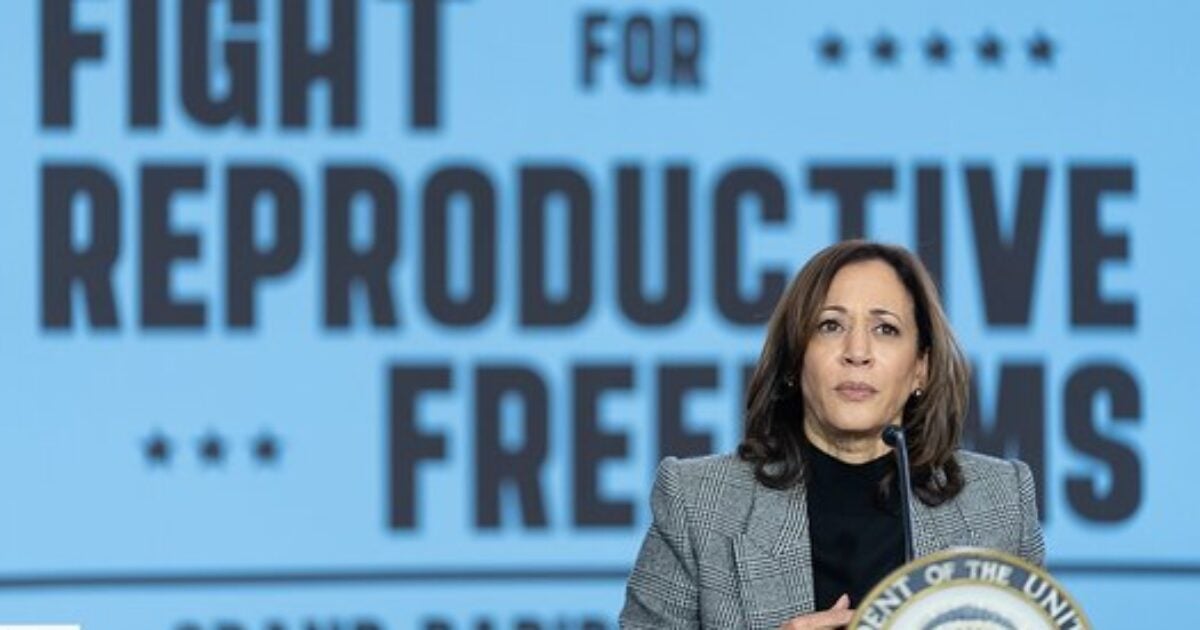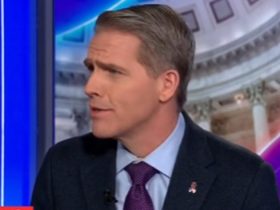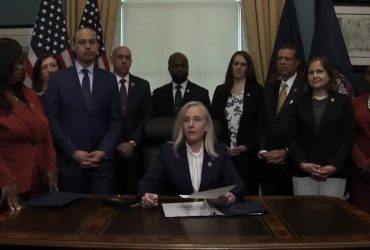Vice President Kamala Harris spoke at a political event in Grand Rapids, Mich., in early 2024. (The White House/Wikimedia Commons)
On July 21, President Biden withdrew from the presidential race, raising questions about the fate of his $232,436,391 in campaign funds.
Some might think he can simply transfer these funds to a new candidate, but that would violate donor trust and be illegal under Federal Election Commission (FEC) regulations, which allow a federal candidate committee to contribute only up to $2,000 per election to another candidate’s committee.
Furthermore, there is no new candidate yet. Biden has endorsed Kamala Harris, but his endorsement does not automatically make her the party’s new candidate.
The Democratic National Committee (DNC) plans to begin virtual voting from August 1 to August 7, a process originally expected to culminate in Biden’s official nomination before his withdrawal.
By dropping out at this late date, Biden has done a great disservice to other candidates who now have only 10 days to raise funds and launch their campaigns for the nomination.
Alternatively, the DNC could rescind their decision to start virtual nominations on August 1, giving candidates more time until the convention on August 19.
Since Biden left the race, the Democrats will have to hold an open convention to choose their nominee. Delegates who were previously obligated to vote for Biden at the convention are now unbound, allowing them to vote for any candidate they prefer.
In some states, candidates will have to get their names on the ballot as early as August 7. Biden’s late departure leaves the nominee just three months to raise funds and campaign against Trump, who, while vilified by the left, is arguably the most well-known person on the planet.
That said, let’s get back to the money.
Campaign funds must first be used to settle any outstanding debts. After debts are settled, remaining funds can either be refunded to donors or used for permissible activities, such as donating to charities or transferring to party committees within legal limits.
The legal loophole in the Biden campaign is that the money was officially given to the Biden-Harris team. Technically, this means Harris could use the funds for her own campaign.
Legal scholars have noted that due to this loophole, despite the switch to Kamala, donors could only get their money back if the party agreed.
If Kamala drops out or fails to secure the nomination, the funds could be transferred to the DNC, but these funds cannot be used directly to support a new candidate’s campaign.
The DNC can use the funds for general party activities, which include promoting the party’s platform, voter outreach, and support for various candidates. However, they cannot simply transfer the funds directly to another candidate’s campaign committee.
So, while it may be legal to pass the donor money on to Harris, this raises serious ethical issues. Donors who contributed to Biden’s campaign did so with the intent to support his candidacy. Automatically transferring these funds to another candidate, even with an endorsement, may not align with the donors’ original intent, especially if they do not support Harris. This action could undermine donor trust and lead to long-term damage to the party’s credibility.
Ethical considerations demand transparency and consent from donors. Ideally, donors should be informed and given the option to consent to their contributions being transferred to another candidate or refunded. This approach respects donor intent and maintains ethical standards.
Maintaining trust and integrity is crucial in political fundraising. Using funds in a way that donors might not have intended can damage the trust between the candidate and their supporters, leading to potential long-term negative impacts on the party’s credibility. Campaigns should clearly communicate with donors about the changes and provide options for refunds or reallocation of their contributions.
Biden’s late departure will make it difficult, but not impossible, for anyone other than Kamala to get the nomination. The fact that Kamala can legally access the funds may sway some delegates to vote for her, since her campaign already has substantial funding.
Regardless of what the Democrats choose to do, the entire Biden debacle demonstrates their lack of integrity. For four years, they have been gaslighting us, claiming we were buying into conspiracy theories every time we pointed out that he was obviously demented, making up words, slurring his speech, and losing the thread. Then in the last few weeks, those same supporters have been calling for Biden to drop out of the race because of dementia.
Furthermore, the Democrats who said Biden was not mentally fit to serve another term never called for his resignation. Meanwhile, the “ridin’ with Biden” crowd insisted that Biden was the best candidate and the only person who could save democracy.
Overnight, they are now all in on Kamala, praising Biden’s backing out as an act of patriotism. If they believed he was the only hope to save democracy, shouldn’t they be angry at him for dropping out?
In a huge twist of irony, the same people who told us last week that age doesn’t matter are now saying Trump is too old. These people just blow with the wind, with no convictions except for the fact that they hate Trump.
The post Biden’s Sudden Exit Raises Questions on the Legality of Transferring Campaign Funds to Kamala Harris appeared first on The Gateway Pundit.











